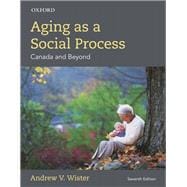The most comprehensive study of the sociology of aging, featuring coverage of the latest issues in the field, recent research and data, and real-world examples from Canada and around the globe
Looking beyond biology to explore the complex social process of aging, this text draws on a wide variety of theoretical and methodological perspectives to reveal the individual and societal dimensions of aging in Canada.








